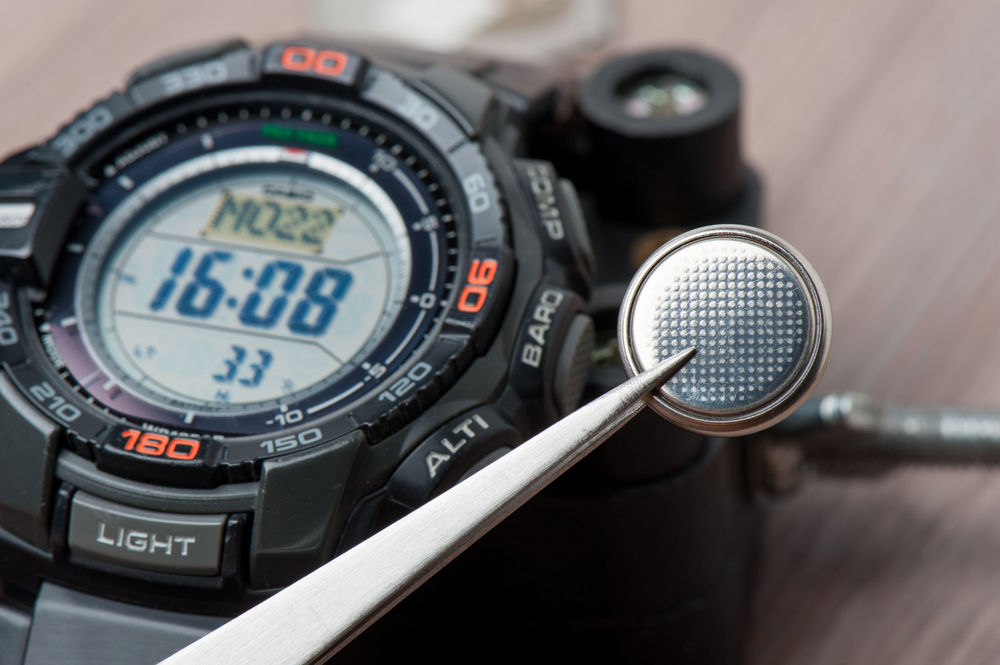Electronic toys and gadgets are always popular Christmas presents
Toys and gadgets often top the list of Santa requests but parents of young children need to be aware that many electronics designed for children have lithium cell batteries, which are the same size as a coin-like. They’re also known as ‘button’ batteries and it’s their small size that makes them a choking hazard.
Every week, around 20 Australian children are rushed to a hospital emergency department with a ‘button’ battery related injury.
Dr Ryan Harvey from House Call Doctor warns, “Parents need to be careful with digital products they bring into their house, particularly for children under the age of three”.
“You can find button batteries in devices like watches, remote control car keys, TV remote controls, calculators, torches, and certain toys.”
Last year, the manufacturers of fidget spinners initiated a recall of its LED Fidget Spinner, as it failed to conceal its button battery securely.
The year before, the ACCC announced a recall of the Finding Dory Under the Sea Light Up Treasure chest, due to similar concerns.
As a parent, you need to be aware of potential hazards:
- Young children can easily ingest a button battery, or insert it in their ears or nostrils. Children under the age of five are most at risk, because they love to put things in their mouths.
- If ingested, the battery triggers an electrical current when it mixes with saliva, releasing hydroxide which can burn soft tissue. If a button battery is not removed within two hours of ingesting, children can suffer perforation of the oesophagus wall, formation of fistulas, or paralysis in the vocal cord.
- Symptoms after a child swallows a button battery can be confused for other conditions. Children may show fever, lethargy, diarrhoea, coughing, or blood in stools as a result of ingesting a button battery. “If your child is showing any of these symptoms, seek medical attention or present to hospital,” Dr Harvey said. If there is a delay in an accurate diagnosis and the removal of the batteries, this may lead to long-term physical impairment, chronic health problems or even death.
- Children may not show any immediate symptoms, and they won’t come forward about it. Young children won’t realise the serious impact of swallowing a button battery, and may be too afraid to tell you for fear of getting in trouble.
- Button batteries that are ‘flat’ can be dangerous. Flat button batteries can still generate enough current to cause serious tissue damage if ingested.
Parents shouldn’t shy away from buying the latest and greatest electronic toy or gadget, but they should take precautions when having them in their family home.
8 tips to keep your children safe from button batteries.
- Always read the label on electronic toys to see if they have lithium ‘button’ batteries.
- Keep loose batteries out of your child’s reach.
- If you’re changing a button battery, do it on a surface out of reach of children.
- If you have a device that uses this type of battery, make sure the battery cover is secure so your child can’t remove it.
- Don’t throw used lithium batteries in the bin. Keep them safely out of reach of children before disposing them via a safe environment disposal system. Ask your local council for the nearest location to dispose your batteries safely.
- Tell your friends, family and neighbours about the dangers of button batteries. It could protect a child’s life.
- If you’re suspicious that your child has swallowed a button battery, or has placed one in his/her nose, seek medical attention immediately. Do not give your child any food or water, and don’t induce vomiting.
- Only buy products that:
- require a screwdriver to open the battery compartment;
- are secured with a child-resistant locking mechanism;
- require two independent and simultaneous movements to access.
___________________________________House Call Doctor sends a home doctor to you and your family when your regular GP is closed at night and on weekends and public holidays. To book a house call home doctor patients should call 13 55 66 or book online or via the House Call Doctor App.





